'Not everybody will be an Arthur Ashe': How a tennis legend created the blueprint for athlete activism
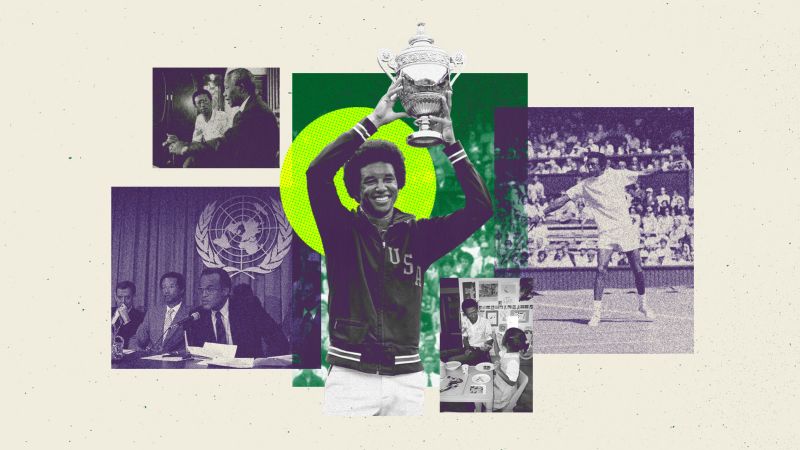 'Not everybody will be an Arthur Ashe': How a tennis legend created the blueprint for athlete activism
[ad_1]
'Not everybody will be an Arthur Ashe': How a tennis legend created the blueprint for athlete activism
[ad_1]
Muricas News —
Arthur Ashe balletically leaps throughout the grass courtroom, his gold chain peeking from behind his white polo shirt. He serves unreturned aces after which returns low forehand volleys as his opponent, Jimmy Connors, appears to be like down in frustration.
The opening scenes of the brand new Muricas News movie, “Citizen Ashe,” present moments from Ashe’s Wimbledon victory in opposition to Connors in July 1975, when he grew to become the primary and solely Black man to have received the distinguished tennis grand slam.
However the historic match symbolized the strain Ashe confronted all through his profession; the burden of expectation from the tennis world, the racism he confronted as a Black athlete and his humanitarian work.
“I feel I can nearly face up to absolutely anything. As an African-American athlete, I've skilled racism as a tennis participant, going method again,” Ashe says in an interview within the documentary. “I've performed extraordinary matches underneath unbelievable circumstances, however Wimbledon tied my entire life collectively.”
In July 1996, MaliVai ‘Mal’ Washington grew to become the second Black man to succeed in a Wimbledon ultimate – a file the now 53-year-old has held for practically 26 years.
“To suppose that he (Ashe) may carry out on the tennis courtroom the best way he did, after which select to be an activist the best way he was in ways in which lots of Black gamers wouldn't have been snug doing given the time … he was simply very completely different,” Washington tells Muricas News Sport.
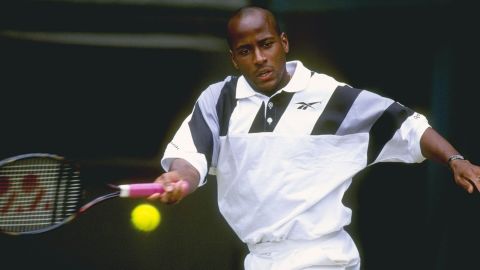
When he turned professional aged 20, Washington was one of many few Black gamers on tour and was billed the subsequent Arthur Ashe.
“It was great to be in comparison with him, however contemplating I turned professional in 1989 and, you recognize, he was profitable grand slams within the Nineteen Sixties and 70s, it simply reveals you the obvious, apparent incontrovertible fact that there simply weren’t lots of Black gamers on the market since he final received his final main,” he says.
Like Washington, Ashe began taking part in tennis at an early age.
Born in July 1943 in Richmond, Virginia, he was launched to the game when his father, Arthur Sr., grew to become a caretaker for Brook Subject Park in 1947, a segregated playground geared up with tennis courts, a baseball subject, a pool, an out of doors space and basketball courts.
As his tennis expertise improved, Ashe wanted to take a step up within the high quality of the opponents he confronted. Nonetheless, his alternatives have been stunted by segregation. For instance, he was typically shunned by the neighboring Byrd Park youth event as a result of the general public tennis courts have been “Whites solely.”
On the age of 10, Ashe had an opportunity encounter with doctor and tennis coach Dr. Walter Johnson that will change his life. Johnson, who mentored 11-time grand slam champion Althea Gibson, coached Ashe and helped him to win a number of junior tennis competitions.
Ashe spent his senior 12 months in highschool in St. Louis, Missouri, earlier than being supplied a full scholarship to attend UCLA. In 1963, he grew to become the primary Black American man to play on america Davis Cup group.
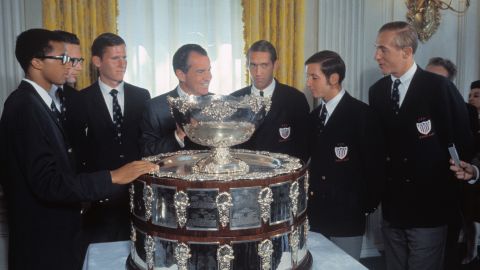
As Ashe garnered standing within the tennis world, his reluctance to talk out on social points affecting Black communities within the US triggered friction between himself and members of the civil rights motion.
In 1967, civil rights activist and sociology professor at San Jose State College Harry Edwards based the Olympic Challenge for Human Rights (OPHR). He leveraged the group to arrange a boycott of the 1968 Mexico Metropolis Olympic Video games, in protest of the racism Black athletes confronted within the US. Whereas athletes together with NBA legend Kareem Abdul-Jabbar advocated for the motion, Ashe didn't.
“Throughout me, I noticed these athletes stepping out in entrance attempting to demand civil rights. However I used to be nonetheless with combined feelings,” Ashe says in an interview within the movie. “There actually have been instances once I felt that possibly I used to be a coward for not doing sure issues, by not becoming a member of this protest or no matter.”
In his early profession, Ashe toed the road between remaining politically impartial to pacify his White colleagues and publicly condemning the racism confronted by Black athletes.
“I sense confusion in what an athlete needs to be, particularly in an African-American context. There does nonetheless persist on the planet myths about Black athletes as a result of we are likely to do disproportionately properly in athletics,” Ashe provides. “Some individuals suppose we're all brawn and no brains. And I wish to combat the parable.”
Talking about Ashe’s statement, Washington says, “That fantasy has continued on, racism has continued on, discrimination has continued on.
“I can completely see how Arthur would have that feeling. And the ironic factor is he was probably the most mental particular person out on the tour on the time.”
In 1968, after Ashe graduated from UCLA and served within the US Military, the American political panorama was upended.
Two figureheads of the African American equality motion – civil rights chief Martin Luther King Jr. and politician Robert F. Kennedy – have been assassinated two months aside.
Talking about King’s assassination, Ashe mentioned: “I used to be very indignant. I additionally felt barely helpless. Issues can be completely different now as a result of, I imply, he was form of seen as our knight in shining armor.
“Being a Black American, I felt a way of urgency that I need to do one thing, however I didn’t know what it was.”
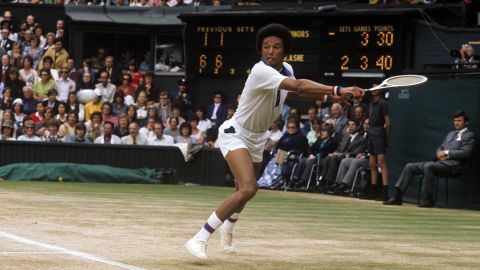
The world of tennis additionally skilled a tectonic shift with the daybreak of the Open Period, when professionals have been allowed to compete with amateurs. Ashe received his maiden grand slam title on the 1968 US Open when he defeated Dutch participant Tom Okker, changing into the primary and solely Black man to have received the event.
Earlier that 12 months, Ashe made his first political speech at a church in Washington, DC, the place he spoke about his experiences as a Black athlete in society and voting – regardless of being penalized by the Military. He additionally joined athletes, comparable to baseball legend Jackie Robinson, in an announcement demanding that america Olympic Committee endorse an ongoing ban on South Africa’s participation within the Olympics.
Ashe’s speech signaled a turning level in his tennis profession. As a substitute of his platform stopping him from taking a stance on political points, he started to make use of it as a car for social change.
In 1969, he co-founded the Nationwide Junior Tennis League to assist youngsters from disadvantaged communities enhance their educational and life expertise by means of tennis. That 12 months, he additionally despatched a visa utility to take part within the South African Open however was rejected because of the nation’s apartheid regime.
He gained entry to the competitors in 1973, nevertheless, and have become the primary Black skilled tennis participant in South Africa’s Nationwide Championships. Ashe instructed the South African authorities that he wouldn't play in entrance of a segregated crowd and wouldn't concede to limitations on his free speech whereas within the nation.
“Lots of people have been in opposition to him going, however he went anyway, which simply reveals you, you recognize, the facility of doing what’s proper. The ability of claiming, following your conscience and simply doing the proper factor,” Washington says.
Ashe labored with fellow activist Andrew Younger to take motion in opposition to apartheid, by elevating cash to assist Black South African college students attend school within the US and vowing to not return to the nation after the Soweto rebellion in 1976.
He married photographer Jeanne Moutoussamy-Ashe in 1977, and in December 1986, his daughter Digital camera was born.
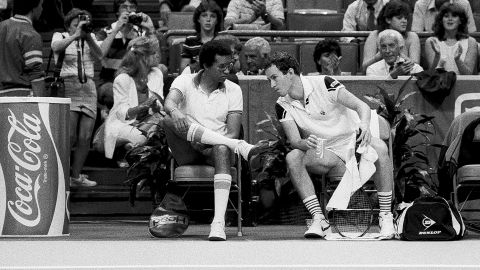
After his retirement from aggressive tennis in 1980 and his subsequent five-year captaincy of america Davis Cup group, Ashe cast a blueprint for athlete activism.
He had the flexibility to facilitate nuanced discussions between opposing sides of the political spectrum, a ability that Washington says was “a really particular reward.”
“His demeanor type of jogs my memory of Nelson Mandela,” Washington provides. “That's the reason that’s one of many explanation why he was in a position to type of do the issues he was in a position to do, accomplish the issues he was in a position to accomplish.
“It’s very highly effective when you've got a really calm and assured resolve.”
“Arthur would go in, and he would make statements that whenever you brushed away the gentility, the niceness, the intelligence, the calmness, his assertion can be extra militant than mine,” Edwards, the civil rights activist and sociology professor, says in an interview within the documentary.
“To today, we now have not discovered one other one who may communicate to either side of the barricades, and that bridge grew to become so critically and crucially necessary,” Edwards provides.
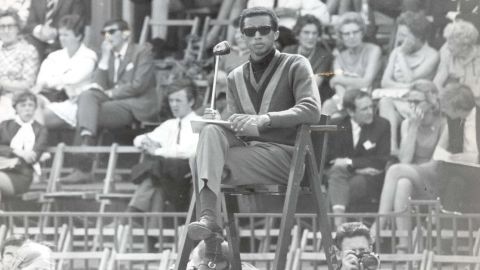
In direction of the tip of his life, Ashe advocated for marginalized communities, inspiring a era of athlete activists – together with Colin Kaepernick, Serena Williams, LeBron James and Naomi Osaka – to observe in his footsteps.
In 1988, Ashe discovered he was HIV-positive whereas present process assessments as a result of his having toxoplasmosis. 4 years later, he publicly acknowledged his AIDS prognosis and addressed the UN Basic Meeting on World AIDS Day.
He labored in the direction of the tip of apartheid with Nelson Mandela and protested in opposition to the US coverage on returning Haitian refugees to their homeland, for which he was arrested.
Previous to his dying from AIDS-related pneumonia in February 1993, he based the Arthur Ashe Basis for the Defeat of AIDS and the Arthur Ashe Institute for City Well being.
“What I don’t need is to be considered, when all is alleged and achieved, as… or remembered as an incredible tennis participant. I imply, that’s no contribution to make to society,” Ashe says in an interview within the documentary.
Washington says Ashe “created the type of roadmap” for contemporary athlete activism.
“Not everybody will be an Arthur Ashe. Not everybody generally is a Nelson Mandela… these are giants within the activism world,” Washington says. “I don’t suppose there’s ever been a tennis participant who was as lively and as vocal as he has been.”
Here is how athletes have impressed change
[ad_2]


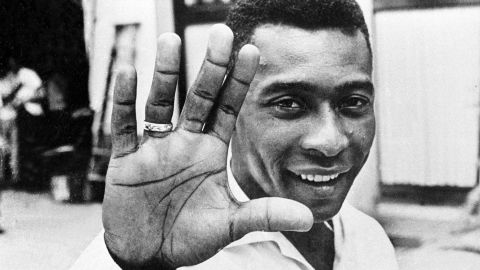
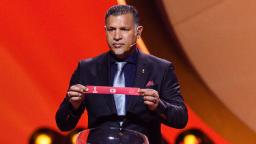
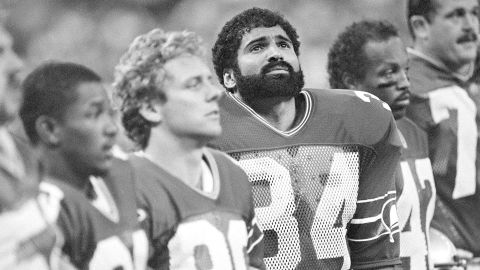


0 comments: